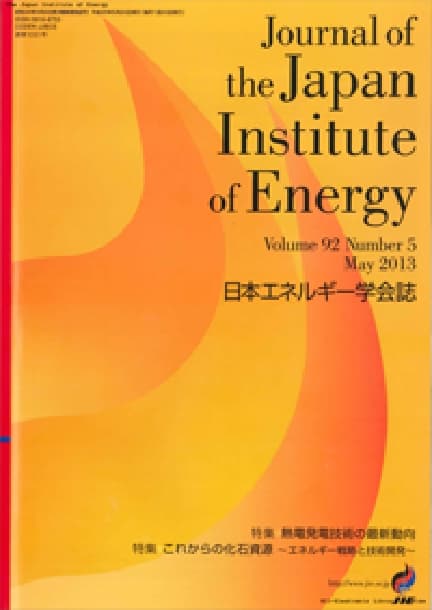Disassembly of Organosolv Lignin in Supercritical Fluid
Xin MAN, Kazuhide OKUDA, Satoshi OHARA, Mitsuo UMETSU, Seiichi TAKAMI, Tadafumi ADSCHIRI
pp. 486-490
DOI:
10.3775/jie.84.486Abstract
Supercritical fluid has been expected to solubilize high-molecular biomass materials by a conversion to low molecules. In this study, we attempted to solubilize an organosolv lignin at 673K in a mixture of phenol and water, and that of benzene and water. The formation of insoluble particles, called char, which result from polymerization of organosolv lignin, was decreased to 12wt% of supplied lignin in a mixture of 1.75g phenol (0.35g/cm3) and 0.75g water (0.15g/cm3), while the char formation in a benzene-water solution was more than that in the phenol-water solutions at any mixture ratios. The soluble products from decomposed organosolv lignin in the phenol-water solution at the appropriate mixture ratio were analyzed by gel permeation chromatograph; the average molecular weight from the phenol-water solution was 388, while 1690 from a benzene-water solution. These results indicate that phenol can function as an inhibitor of polymerization of organosolv lignin, but do not benzene. Further, the chemical compounds produced from the decomposed organosolv lignin were characterized by GC-FID; GC-FID detected several low molecular compounds only from the decomposed organosolv lignin in a phenol-water solution. The inhibition mechanism of organosolv lignin polymerization by phenol at supercritical conditions was discussed.
Readers Who Read This Article Also Read
Journal of the Japan Institute of Energy Vol.84(2005), No.3
Journal of the Japan Institute of Energy Vol.84(2005), No.3
Journal of the Japan Institute of Energy Vol.84(2005), No.12










